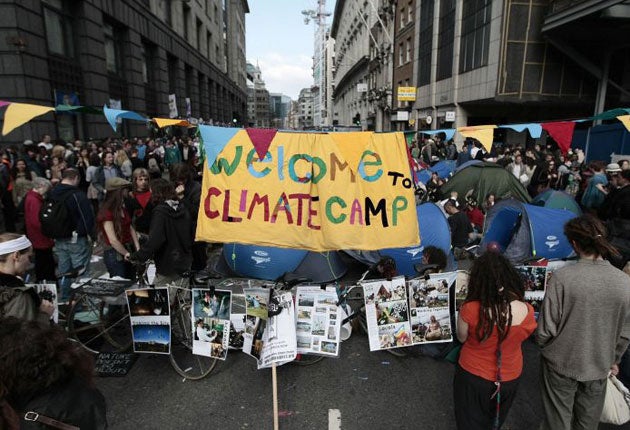Your support helps us to tell the story
From reproductive rights to climate change to Big Tech, The Independent is on the ground when the story is developing. Whether it's investigating the financials of Elon Musk's pro-Trump PAC or producing our latest documentary, 'The A Word', which shines a light on the American women fighting for reproductive rights, we know how important it is to parse out the facts from the messaging.
At such a critical moment in US history, we need reporters on the ground. Your donation allows us to keep sending journalists to speak to both sides of the story.
The Independent is trusted by Americans across the entire political spectrum. And unlike many other quality news outlets, we choose not to lock Americans out of our reporting and analysis with paywalls. We believe quality journalism should be available to everyone, paid for by those who can afford it.
Your support makes all the difference.Police are to appeal against today's High Court decision declaring unlawful controversial "kettling" tactics used against demonstrators during G20 protests in central London two years ago.
The judgment led to a call from human rights lawyers for an "immediate change to police attitudes and tactics".
But the Metropolitan Police expressed concern over the impact of the ruling on its ability "to prevent disorder within protests".
The judgment was a victory for Hannah McClure, a student, and Josh Moos, a campaigner for Plane Stupid, who had challenged the legality of the "violent" restraint methods used against them at the Camp for Climate Action in Bishopsgate on April 1 2009.
It was the day newspaper seller Ian Tomlinson died after being struck by a police officer at a separate G20 protest at the nearby Royal Exchange.
The police had sought to justify imposing the kettle at the climate camp, saying they feared violent demonstrators at the Royal Exchange would "hijack" the more peaceful climate camp, attended by up to 4,000 people.
But the High Court ruled today there had been no evidence of an imminent breach of the peace to justify the kettle, in which a tight police cordon was thrown round the demonstrators from just after 7pm for more than four hours.
The judges criticised "unduly inflexible" arrangements for releasing people contained within it. Moos said he became dehydrated after being refused permission to leave.
The judges specifically condemned the Metropolitan Police over the way officers armed with batons and riot shields pushed a 15-deep crowd of demonstrators back some 20m-30m.
Sir Anthony May, who is president of the Queen's Bench Division, and Mr Justice Sweeney said "unjustified force" had been used.
The judges also said the Met "policy and training" about the use of riot shields to push and strike "appeared to be insufficient".
They declared: "There needed to be clear-cut instructions as to whether shield strikes were ever justified and, if so, when."
John Halford, of Bindmans solicitors, who acted for McClure and Moos, said later: "The court has roundly condemned the unlawful and oppressive police response, exposing it as unacceptable in a democratic society.
"To date, there have been few signs of a change in police attitudes and tactics since G20. This judgment could not give a clearer signal that that must happen immediately."
The Metropolitan Police Service (MPS) announced it would appeal against today's judgment, saying: "It should be noted that the judgment relates to the individual circumstances of 1 April 2009 and not the use of containment at other events.
"Where necessary, we will continue to use containment as a last resort to prevent serious disorder and violence.
"However, we believe that this issue is so important for the police's ability to prevent disorder within protest that we will be appealing the Administrative Court's finding that the containment and pushing operations on the 1 April 2009 in Bishopsgate were not lawful.
"The MPS believes that the Bishopsgate containment prevented further scenes of violence and criminal damage occurring on 1 April 2009."
Jenny Jones, a member of the Metropolitan Police Authority, said: "This decision means that the Met will have to reconsider all use of kettling as a tactic.
"It's my view that they have used kettling illegally, and sometimes violently, on peaceful demonstrations like the Climate Camp at Bishopsgate, since May 2001.
"Kettling takes away the human rights and civil liberties of innocent, legal protesters, which finally the court has recognised."
A spokesman for human rights group Liberty said: "The practice of kettling is one of the most controversial and divisive in public order policing.
"It sweeps up the innocent with the guilty, raises the emotional temperature of everyone involved and undermines trust in the police."

Join our commenting forum
Join thought-provoking conversations, follow other Independent readers and see their replies
Comments